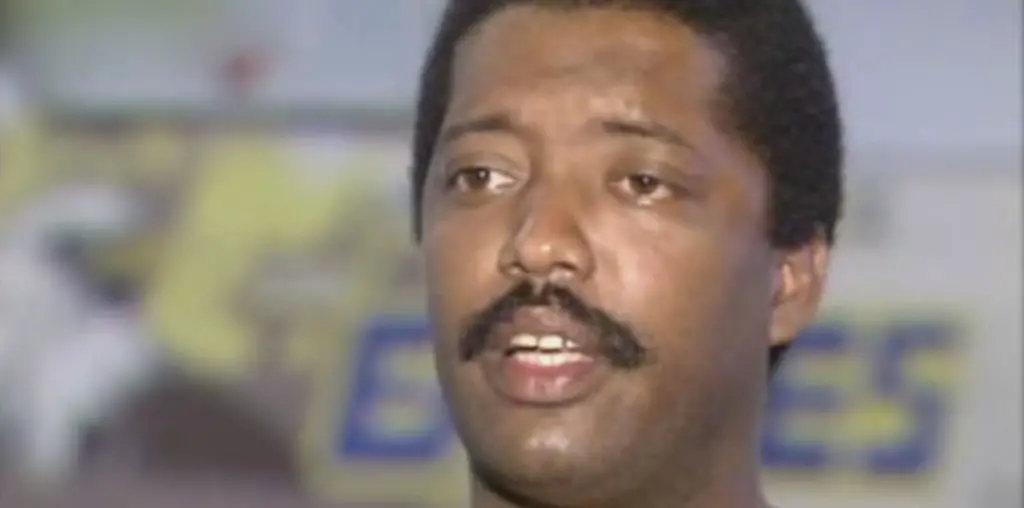
When I was recently offered a DVD screener of Todd Solondz’s latest film “Dark Horse,” I got really excited. Yes, the man famous for such antagonistic, cynical, brutally honest and yet somehow sweet filmmaking is a director whose films I’m always excited to partake in. And partake is what you do, when you aren’t cringing or shaking your head at the characters and the worlds Solondz brings to life onscreen. While many would point to Solondz’s breakout film, 1995’s “Welcome to the Dollhouse,” as his best, I myself am a big, big fan of his follow up effort, 1998’s “Happiness.”
Frankly, “Happiness” is the better film as Solondz juggles several completely f****d-up storylines (and the screwed up people within them) and sees them all through to endings which, while they wobble between frustrating and endearing, are nothing but wickedly honest and heartfelt. To bring sympathy to a perverted crank caller, a murderer and a child molester is no small feat and to merely broach all these subjects in one film is either the height of cinematic bravery or epitome of attention getting. Or both.
Either way, “Happiness” cemented my positive opinion of Solondz. I feel his follow-ups “Storytelling” (which was apparently damaged by studio interference) and “Palindromes” both featured intriguing moments and unique plot stylings, but they were just too experimental for my tastes. Yet his sequel (of sorts) to “Happiness,” 2009’s “Life During Wartime” was an overlooked film that, like “Palindromes,” suffered from a little too much stunt casting and not enough heart and soul. I still found it fascinating and thrilling and if you’re reading this and have seen “Happiness” but not the follow up, do so immediately. (As of this writing, it’s streaming on Netflix Instant)
So overall, my opinion of Solondz is still a high one but on a simple “like” or “dislike” scale, he’s pretty much dead even in my eyes. Which leads us to his latest offering, “Dark Horse.” Would this be a tilt in the direction of dislike for me or a positive spin in the upwards direction? Unfortunately, I have to say the answer is… neither.
While I somewhat liked “Dark Horse,” it simply didn’t resonate with me like his other films do. In the end I felt like Solondz was leaning too hard on being a provocateur rather than playing that card while managing to embellish his characters and their stories with heart and ambition. Plus I found the film kind of mean and far too cynical, even by Solondz standards.
“Dark Horse” is the story of Abe (Gelber), a full grown man-child whose spoiled upper-class Jewish upbringing has left him in a growth stasis. He still lives with his parents and spends all of his money and time collecting toys, that is when he’s not throwing temper tantrums or slacking off at his job, which is a nepotistic one at his father’s property management business. Abe is an a*****e but he doesn’t seem to know it even if everyone else, including the viewers, do. At a wedding he is seated next to the solemn Miranda (Blair) and after a nearly completely one-sided conversation with the depressing gal, Abe decides they have a connection and must meet again. Fans of Solondz know his turf well enough to realize early on that both of these people lead damaged lives and will be thrown together. Yet in “Dark Horse,” I felt as if Solondz is making fun of his characters rather than trying to gain the audience some empathy.
Abe drives his outrageous vehicle while listening to frothy, upbeat pop songs that don’t fit his character or life at all. The soundtrack is either up and coming wannabes or brilliant satirists who both get and despise adult contemporary music. Gelber’s “Abe” is in virtually every scene of the movie so we meander with him through home life with stoic, boring dad Jackie (Walken) and syrupy, doting mom Phyllis (Farrow). As his “relationship” with Miranda progresses, we meet he ex, effeminate yet kind of passive-aggressive Mahmoud (Mandvi) who clearly has Miranda wrapped around his finger. The only person who seems to truly care at all about Abe is the work secretary Marie (Murphy) who sweetly tries to cover for the inept Abe as he constantly shirks responsibility at work. All of the acting here is solid. Jordan Gelber in particular plays his role honestly as he is at once a hulking mass of false confidence only to become a shimmering pile of insecurity moments later.
And all of this is fine and somewhat entertaining but beneath it, I can’t help think that Solondz is doing more than showing a miserable life in progress, he’s making fun of it and encouraging us to follow suit. It’s the equivalent of cinematic bullying, which is ironic given the angle Solondz took on bullies in “Welcome to the Dollhouse.” Then again, the entirety of “Dark Horse” is built on irony so it is indeed fitting. Still, maybe I read the film wrong but it’s hard to like or care about characters when the guy who wrote them and is directing them seems to actively hate them.
Eventually “Dark Horse” kind of evolves into an intriguing mesh of “real” life and dream sequence and Abe and his motivations get even more confusing. Yet the real issue for me here is Solondz’s unwillingness to cut any of these characters any slack which, is perhaps the point of “Dark Horse.” While I’ll still look forward to anything Solondz is involved with, “Dark Horse” was a little too mean spirited for me and felt like provocation with too heavy a dose of meanness.
